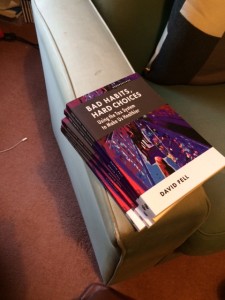My interest was caught by this Quartz article about a new database of the set texts at top US colleges, revealing which texts are the most-frequently set for different universities and subjects. The most often observed are Plato, Hobbes and Machiavelli. Interesting.
It set me thinking about a somewhat different challenge, one that turned out to be much harder than selecting my eight pieces of music for Desert Island Discs (or, my variant, the top ten foods I would have to have on the desert island). What ten books would you absolutely want a young person to read – whatever their subject – to be well-rounded? The idea is a kind of summer reading list for someone about to go to university – what kind of broad mental hinterland should they have before arriving to start a social science degree?
Any selection is bound to reveal cultural bias as well as personal interests, but here is my list for starters, divided into three categories. It’s European rather than American. I’m very disappointed that I couldn’t in all honesty include more female authors.
Needless to say, other lists or additions are welcome.
Understanding how the world is:
On the Origin of Species – Charles Darwin
An Enquiry Concerning Human Understanding – David Hume
Thinking Fast and Slow – Daniel Kahneman
Postwar: A History of Europe since 1945 – Tony Judt
How the world ought and ought not to be:
The Idea of Justice – Amartya Sen
The Second Sex – Simone de Beauvoir
L’Etranger – Albert Camus
Making the world better:
Seeing Like A State – James Scott
Reinventing the Bazaar – John McMillan (or maybe Al Roth’s Who Gets What and Why)
Cities and the Wealth of Nations – Jane Jacobs

